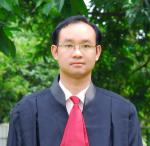美国最高法院受理的新案 隐私权之争City of Ontario v. Quon一案裁定
发布日期:2010-04-20 作者:110网律师
律师田凤常向中国读者介绍说,美国最高法院2010-4-20受理的涉及公民隐私权的City of Ontario v. Quon一案今年6月17日作出了如下裁定:“警局对其警官利用单位下发的BB机传输淫秽信息实施搜查的做法是合乎常理的、没有侵犯其隐私权。”
WASHINGTON
The Supreme Court ruled that a search of sexually explicit text messages sent by a police officer on a department pager was reasonable and did not violate his privacy rights.
美国最高法院的大法官们一致推翻了美国第九巡回法院作出的判决,加州的这一上诉法院曾指出:“警局阅读单位所有的电子仪器上的信息的行为侵犯了杰夫俊根据宪法享有的隐私权”。
The justices unanimously overturned a ruling by a U.S. appeals court in California that found that reading the text messages sent on an employer-provided electronic device violated the worker's constitutional privacy rights.
本案属美国最高法院首次涉及美国宪法对隐私权的保护是否可以延展到职务中的文字信息领域。
It marked the first time that the Supreme Court addressed whether the U.S. Constitution's protection of privacy rights extended to text messages on the job.
本案的裁定是加州Ontario市政府以及奥巴马政府的一个胜利。政府一再主张:在利用雇主提供的仪器进行通讯交流中不要指望什么对隐私权的保护。
The ruling was a victory for a city in California and for the Obama administration, which had argued that workers have no expectation of privacy in their communications on devices supplied by their employers.
随着电脑、手机等电子产品在工作场合的普遍使用,本案一直以来受到了广泛的关注。诸多的雇主告诉其雇员,其仪器的使用可能被监听。
The case had been closely watched as computers, cell phones and pagers have become standard communications equipment in the workplace. Many employers have told their workers their use of the devices can be monitored.
本案的起因是,一名叫做杰夫俊的特警队警官和另外三名警官将警局以及阅读了他们的私人消息的警局首长告上了法庭。
The case from Ontario, California, stemmed from a lawsuit by police department SWAT team Sergeant Jeff Quon and three others who sued the department and the police chief who read the text messages.
杰夫俊诉称,警局侵犯了他的以及与其交换信息的人的隐私权。
Quon said the police chief violated his privacy rights and those with whom he sent and received the messages -- fellow Sergeant Steve Trujillo, Dispatcher April Florio, who was his girlfriend, and his wife Jerilyn Quon.
警局辩称,杰夫俊利用其BB机交换了数以百计的个人信息,并含有大量的淫秽信息。
The department said Quon used his pager to exchange hundreds of personal messages, many of them sexually explicit.
He sent the messages despite signing a city policy that allows only limited personal use of employer-owned electronic equipment and that warns them not to expect any privacy in use of the devices.
Under the city's contract with the company that provided the text messaging services, each pager was allotted 25,000 characters a month. Another officer told Quon he could reimburse the city for any charges when exceeding the limit.
The police department contacted the provider, a company which is now part of USA Mobility Inc, after learning some officers had exceeded the limit each month. The company provided transcripts of the messages to the police chief.
Writing the opinion, Justice Anthony Kennedy said, "Though the case touches issues of far-reaching significance, the court concludes it can be resolved by settled principles determining when a search is reasonable."
The Supreme Court case is City of Ontario v. Quon, 08-1332.
如有意交流,请电致:13366950226 or send email to: tianfc@hotmail.com
著名知识产权律师田凤常介绍说,美国最高法院昨天(2010-4-20)受理了涉及公民隐私权的案件。本案的关键旨在解决利用公家发放的BB机传输/接受淫秽信息的警官是否仍然享有这样一个合理的预期,那就是,警官的上司是不应查看BB机所载的信息的。
The well-known Chinese lawyer, Tian Fengchang introduced to the Chinese readers that the US Supreme Court on Monday took up a case testing whether a police officer who used his department-issued pager to transmit and receive sexually explicit messages had a reasonable expectation of privacy that the messages would not be viewed by police officials.
本案之所以备受关注,是因为案件的结果很可能为在工作环境中,究竟在什么情况下员工的私人函件、电子邮件、及其他与外界交流的内容等可依照宪法第四修正案得到隐私权的保护,这一重要问题,而确立一项新的宪法层面的法则。
The case is being closely watched because it could establish new constitutional ground rules for when personal text messages, emails, and other communications in the workplace are entitled to Fourth Amendment privacy protections.
The case before the high court involves a sergeant on the SWAT team of the Ontario, Calif., police department. Jeff Quon used his police-issued pager to send and receive both work-related and personal messages.
案件中涉及到警官叫杰夫俊。公家发给他的BB机,他收发消息时公私兼顾。
The police department maintained a written policy that permitted limited personal use of department-issued computers and other equipment. The policy warned employees that their computer-generated emails and text messages might be monitored or audited at any time.
警局有过书面规定,允许将公用的电脑等设备限量用于私人事务。规定还警告过员工说,电脑生成的电子邮件、函件等随时会受到监视、盘查。
In 2001, the city distributed pagers to certain members of the police department, including Mr. Quon. Officials said the same no-privacy policy for computers would also apply to the pagers.
2001年,当地市政府向警官(包括杰夫俊警官)发放BB机。警局重审上述适用电脑的原则同样适用与BB机。
But within a year, a department official told officers he had no intention of auditing pager message traffic, provided the officers personally paid for any extra charges on their pagers above the city’s monthly subscription allowance.
尚不满一年,警局一主管告诉其警官说,不再对BB机所载内容实施监督,但公家承诺的月供以外的信息费各警官需自付。
Quon went over the limit at least three times and paid the city for the extra charges each time.
警官杰夫俊至少3次信息费超值,不过每次均支付了多余的费用。
Then, in August 2002, the pager reimbursement procedure was changed. Rather than allowing officers to cover the costs of their personal messages, the police chief authorized department officials to review transcripts of text messages that exceeded the department’s monthly allocation.
之后,2002年8月,BB机的报销程序有了变化。一改允许警官自付额外部分的规定,警局领导授权警局某部对那些超过月供的BB机电文字记录进行审查。
The review revealed that Quon had engaged in extensive non-work-related communications on his pager, and that some of these communications were sexually explicit messages sent to his girlfriend. The matter was referred to internal affairs for an investigation.
审查发现,杰夫俊的BB机中载有大量与工作无关的信息,而且,有些通讯内容涉及与其女友之间的淫秽内容。此事被反映到警局内务部进行进一步调查。
Quon responded by filing a lawsuit in federal court charging that he had a reasonable expectation of privacy in his personal text messages and that the department’s actions had thus violated the privacy protections of the Fourth Amendment.
杰夫俊警官的反应却是:将当地市政府告上了联邦法庭,称其享有一合理的预期,警官的上司不应查看BB机所载的信息。警局的行为违反了宪法第四修正案对公民隐私权的保护。
A federal judge found no Fourth Amendment violation and dismissed Quon’s lawsuit.
一审法院的法官认为,警局的行为不构成对宪法第四修正案违反,驳回了杰夫俊的诉求。
On appeal, the Ninth US Circuit Court of Appeals reversed, ruling that because the department had maintained an unwritten text message policy allowing officers to pay reimbursements, Quon had a reasonable expectation that his personal messages would remain private.
在上诉案的审理中,美国第九巡回法院作出了相反的判决,其裁定指出,“因警局曾一度维持着一个并非书面的、针对文字信息的规定,允许其警官对….部分自行支付,因此,杰夫俊享有合理预期,既其私人消息属私密性信息”。
In addition, the appeals court found that the department’s decision to review transcripts of Quon’s text messages was unreasonable.
除此而外,上诉法院还指出:警局决定审查杰夫俊的文字信息内容是没有道理的。
It is that Ninth Circuit decision that is under review at the high court.
第九巡回法院的这个判决决定就是美国最高法院目前要审理的内容所在。
The Obama administration joined the appeal on the side of the City of Ontario and is asking the justices to overturn the appeals court decision.
奥巴马政府作为当地市府的支持者也加入了本案上诉审的诉讼活动。奥巴马政府要求美国最高法官的大法官们推翻上诉法院对本案的判决。
For further discussion, please contact: tianfc@hotmail.com
tianfc@longanlaw.com
以下是各方意见及评论: 让我们拭目以待。
“Thousands of employers across the country rely on these [limited personal use] policies, and millions of employees,” Deputy Solicitor General Neal Katyal told the justices. “The Ninth Circuit’s decision puts that reliance in some jeopardy because it says you can have an official policy and it can be taken back by what some ad hoc subordinate says.”
The city’s lawyer, Kent Richland, urged the justices to find that the city’s written policy had clearly established that employees would enjoy no protected right of privacy when using city-issued equipment for personal messages.
Quon’s lawyer, Dieter Dammeier, said Quon had a reasonable expectation of privacy via the department’s unwritten reimbursement policy and the pledge that pager use would not be audited provided the officer paid for any overages.
Justice Ruth Bader Ginsburg questioned why the unwritten policy would trump the city’s long-established written policy mandating that personal communications made on city-owned equipment would enjoy no right to privacy.
“If an employee is told, now emails aren’t private, so we are warning you, we can monitor them, wouldn’t such an employee expect the same thing to apply to the pager?” she asked.
Mr. Dammeier said it is up to the city to establish clear rules that apply to personal use of city-owned equipment. He noted that the city had failed to do so.
Despite the written policy, Dammeier said, a key official in the department gave a guarantee to officers that as long as they paid the overages their messages would remain private.
Richland, the city’s lawyer, disagreed with the suggestion that officers were given a “guarantee of privacy.”
“It is hard to see how that in any way undercuts the official written policy,” he said.
The case is City of Ontario v. Quon, and a decision is expected by late June.
相关法律问题
- 我弟半夜在熟睡中被其妻的奸夫进屋用斧头砍死,凶手逃跑被抓,最高法 3个回答
 0
0 - 法院不把酌定减轻判决依法层报最高法院核准该咋办? 1个回答
 0
0 - 已经执行了的酌定减轻判决没有报最高法院核准该咋办? 0个回答
 0
0 - 关于最高人民法院受理案件程序的问题 2个回答
 10
10 - 这样是否侵犯我的隐私权和名誉权 2个回答
 25
25
发布咨询
相关文章
相关法律知识
 0
0







